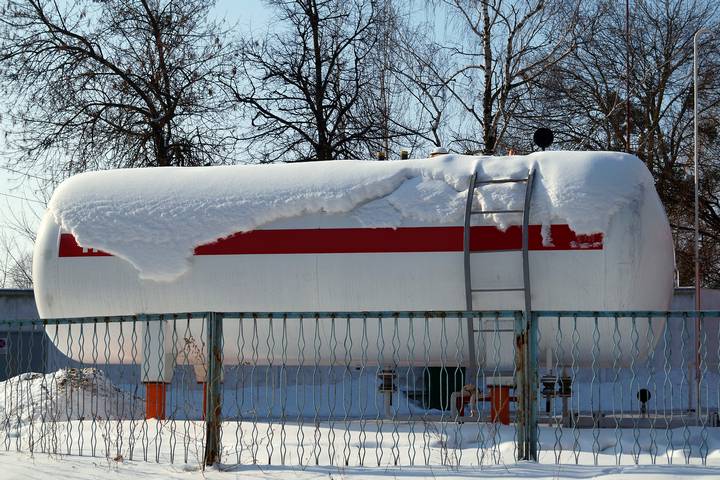Propane can power many household appliances, from barbecue grills to water heaters. This versatile fuel operates efficiently across all seasons, regardless of temperature. It is valuable for supplying energy to heating devices, particularly in winter. Despite its utility, propane requires careful management. You should ensure your propane tanks are secured throughout the winter season.
If you intend to keep your propane tank outside during winter, it is exposed to the more extreme temperatures of the season. Before the coldest months of the year arrive, homeowners should winterize their propane tanks. While low and freezing temperatures aren’t typically a problem, safety measures are still advisable. Securing your propane tank provides peace of mind, regardless of severe weather.
Here is what you need to know about keeping propane tanks in good condition during winter.
Propane Tank Location
You can leave your propane tank outdoors during the winter. However, consider safety measures. Keep the propane tank in a well-ventilated, shaded area out of the sun. Ensure regular snow removal to maintain a clear, accessible path leading you to the tank.
In addition, you should reduce the risk of having something puncture the tank. Your propane tank should be in a secure, level location where there is no risk of anything above it falling over the top. Do not put anything on top of a propane tank. Likewise, ensure nothing could collapse near it, potentially causing harm.
Why are propane tanks placed outdoors? That’s because keeping propane tanks indoors can be dangerous, especially in an area with restricted ventilation. Temperatures can rise, triggering hazards. Propane can disperse naturally outside, but it accumulates and engulfs the enclosed space if kept in a room. Hot temperatures increase the pressure inside the tank and cause destabilization. It also creates a fire hazard where a spark can ignite the area.
Propane Tank Leak Detection
As you winterize your propane tank, inspect it for leaks. Look at the valve, tank, and connector hose. Inspect it for wear and tear. For maximum safety, do this check away from open flames or ignition sources.
Pure propane has no smell. However, additives in a propane tank give it an odour like rotten eggs. If you smell that around your propane tank, it’s a sign of a leak. The tank may have been compromised somehow. Or perhaps earlier in the year, the safety valve blew due to high-temperature exposure. When you discover a leak, act quickly. Have a professional repair or discard the propane tank safely.
You should also ask an expert to detect leaks thoroughly. These professionals will inspect the propane tank, around the valves, and on the hose. They can identify early signs of a leak, pinpointing its precise location.
Propane Tank Weather Protection
Propane gas doesn’t require specific winterization methods or supplementary additives, unlike gasoline or diesel. Even at harsh, frigid temperatures, propane maintains its gaseous state. You do not have to worry about the fuel gelling or freezing. This resilience to cold weather is undeniably one of propane’s advantages.
While propane is unaffected by extreme temperature conditions, the tank can be susceptible to the ravages of nature. The tank should be carefully safeguarded from the elements to prevent damage. The structure may suffer intense cold, dampness, and exposure to severe weather during winter. It can result in rusting, corrosion, or visible damage to the tank’s exterior.
Draping a tarp over your propane tank ensures its protection from the winter elements. Although snow, chilly rain, and ice won’t cause harm temperature-wise, the persistent moisture may lead to rust. It can result in irreversible damage that compromises the tank’s structural integrity.
Propane Tank Safety Maintenance
Before each season, it’s wise to arrange periodic assessments by a skilled propane service expert. These regular check-ups can help preserve the propane tank condition, particularly before winterizing it. A primary safety concern is the possibility of gas leaks. Scheduled examinations include leak detection assessments, confirming all tank connections are leak-free.
Propane tanks and their components will wear and tear as time passes. It may involve rust, corrosion, or damage to valves, fittings, and hoses. Skilled professionals can detect such issues during maintenance check-ups. The experts propose necessary repairs or replacements before minor issues escalate into significant problems.

